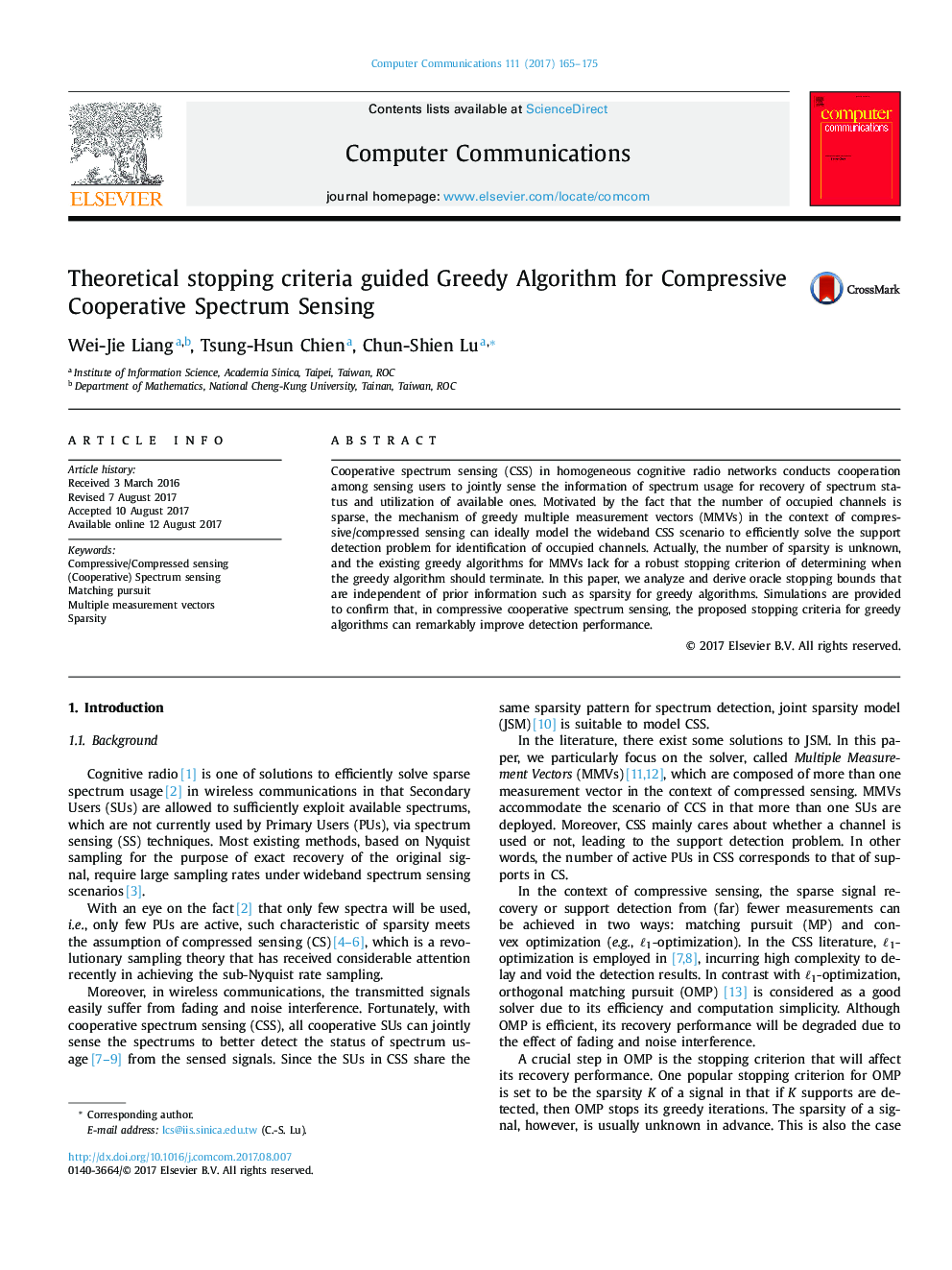| Article ID | Journal | Published Year | Pages | File Type |
|---|---|---|---|---|
| 4954255 | Computer Communications | 2017 | 11 Pages |
Abstract
Cooperative spectrum sensing (CSS) in homogeneous cognitive radio networks conducts cooperation among sensing users to jointly sense the information of spectrum usage for recovery of spectrum status and utilization of available ones. Motivated by the fact that the number of occupied channels is sparse, the mechanism of greedy multiple measurement vectors (MMVs) in the context of compressive/compressed sensing can ideally model the wideband CSS scenario to efficiently solve the support detection problem for identification of occupied channels. Actually, the number of sparsity is unknown, and the existing greedy algorithms for MMVs lack for a robust stopping criterion of determining when the greedy algorithm should terminate. In this paper, we analyze and derive oracle stopping bounds that are independent of prior information such as sparsity for greedy algorithms. Simulations are provided to confirm that, in compressive cooperative spectrum sensing, the proposed stopping criteria for greedy algorithms can remarkably improve detection performance.
Related Topics
Physical Sciences and Engineering
Computer Science
Computer Networks and Communications
Authors
Wei-Jie Liang, Tsung-Hsun Chien, Chun-Shien Lu,
